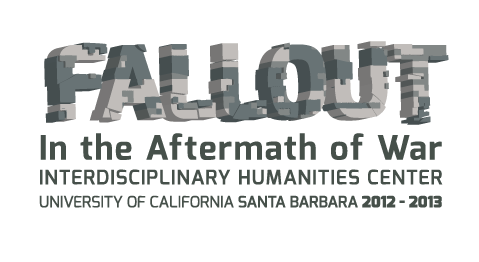Faisal Ajam
Staff Writer
Campbell Hall was graced last Wednesday, Jan. 16, with the presence of Dexter Filkins, a combat journalist who spent seven years in Afghanistan and Iraq. This talk was the first of many in a series called “Fallout: In The Aftermath of War.” Set to run through 2013, the first event was a talk on “The Impact of War on Literature and Film in Afghanistan” by Wali Ahmadhi, a specialist on comparative literature and the author of “Modern Persian Literature in Afghanistan.” Filkins has been a staff member of the magazine The New Yorker for about two years now, and prior to that he was a reporter for The New York Times for over a decade.
Filkins opened his lecture with statements about being shot at and kidnapped. His goal was to convey to us what it was like to be in that situation through powerful photography from the narratives of his own experiences. Right off the bat he told the audience that living in war was “more boredom than terror, but all you can remember is the terror.” Filkins would frequently place “happy” photos or tell the audience humorous stories to break the tension. He began covering wars by accident; while he was working for The Los Anegeles times in 1997, his editors went through a list of people they wanted to send to New Dehli, and all declined until the list reached Filkins. He began to notice “something wrong with these areas [the Subcontinent and Near East]” and after Sept. 11 it all “clicked.”
The first half of the talk focused on Afghanistan and the Taliban’s rule over the region. Afghanistan itself was portrayed as a curious place. Some of the photos taken looked like they were nearly 150 years old. Filkins romantically called it, “the land that time forgot.” Eventually Filkins arrived at a photo that he told all of us to remember. It was a picture of downtown Kabul following its decimation by the Soviets. It was quiet and barren. Filkins said the reason the United States struggles in Afghanistan is that we “forgot about it” while moving our forces to Iraq for five years. The government in Afghanistan effectively collapsed in three days.
Following this Filkins moved onto the Iraq portion of the lecture. It began with a lot of humor, but quickly took a dark tone. He described the day Saddam was toppled.
“At 10 a.m. the looting began, at 12 p.m. the city was ablaze, at 3 p.m. it was complete and total chaos,” Filkins said. As Filkins looked on he remembered thinking that for every 20 minutes that passed, another eight years would necessary to rectify Baghdad. Then he spoke of suicide bombings. All of this was accompanied by very vivid photography. The audience seemed to feel the horror of the event.
After the lecture a questions panel opened, a question was asked about the hatred and blame that the region holds toward the United States. Filkins had mentioned this sentiment several times throughout the lecture. He stated that as long as the Americans took on the responsibility for happenings in the region, ill will shall grow; however, “but can you please get me a visa [to the US]?” is a common desire held by the Middle Easterners Filkins encountered.
Another member of the audience asked, “What was the most fun part of it all?” To which Filkins replied, “Never decline a ride in a Blackhawk helicopter.”
According to the Interdisciplinary Humanities Center’s website, the Fallout series is set to end April 16 with a talk by Nina Berman, an American photographic documentor. There are still 10 events left, with the next being, “Knowing Terrible Things: Thinking the Unthinkable in times of War,” which will be held Jan. 24.
Image Courtesy of the Interdisciplinary Humanities Center











